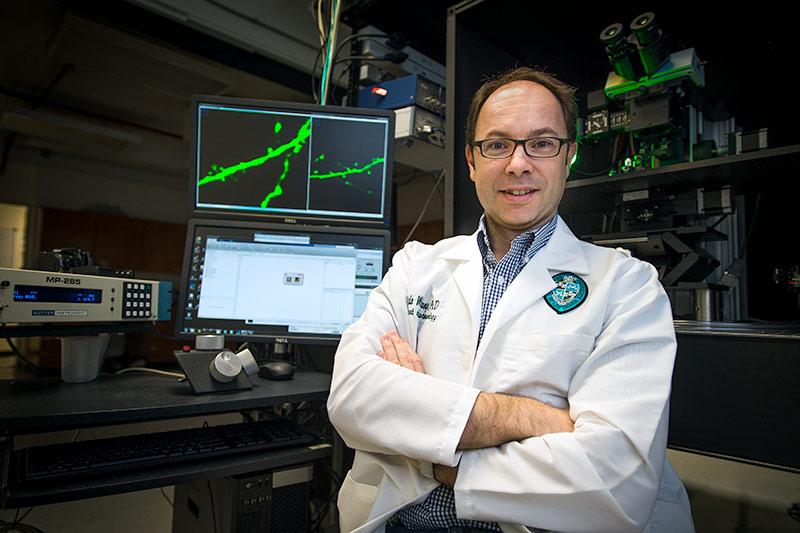Researcher examines how time steals memories
We’ve all experienced that moment of trying to remember something and, suddenly, our mind draws a complete blank.
It can happen to the old and young alike, but why is forgetfulness more common with age? Ricardo Mostany, assistant professor of pharmacology, is working to understand what happens inside the brain that weakens its ability to form new memories.
“We are studying the aged brain before what is called mild cognitive decline,” said Mostany. “The brain is different later on in life and we are trying to characterize what is happening normally to see what is the next step leading into dementia. We can use this information for the study of Alzheimer’s and other degenerative diseases that appear late in life.”
"When we forget something it is because our neural connections disappear and are no longer there."
Ricardo Mostany
Mostany was named the 2016 Oliver Fund Scholar for his innovative research in brain science. The $40,000 prize supports outstanding faculty research initiatives and is awarded by a committee of senior Tulane faculty and other experts.
The award will fund his investigation of neural circuits using a living mouse model. Specifically, he’s looking at what makes the connections in the cortex less stable. The aged brain is not able to maintain the contacts between brain cells within a neural circuit for as long as a young brain can. This impairs transmission of information between neurons and affects the formation and endurance of memories.
“With this grant we want to try to see if, using state of the art techniques, we can somehow reverse this deficit and bring the balance back to a more normal or close to what a younger brain has,” Mostany said. “If we are able to identify the mechanism responsible for this impairment, we would be able to design therapeutic approaches to delay the onset of the decline in brain functionalities associated with healthy aging.”

